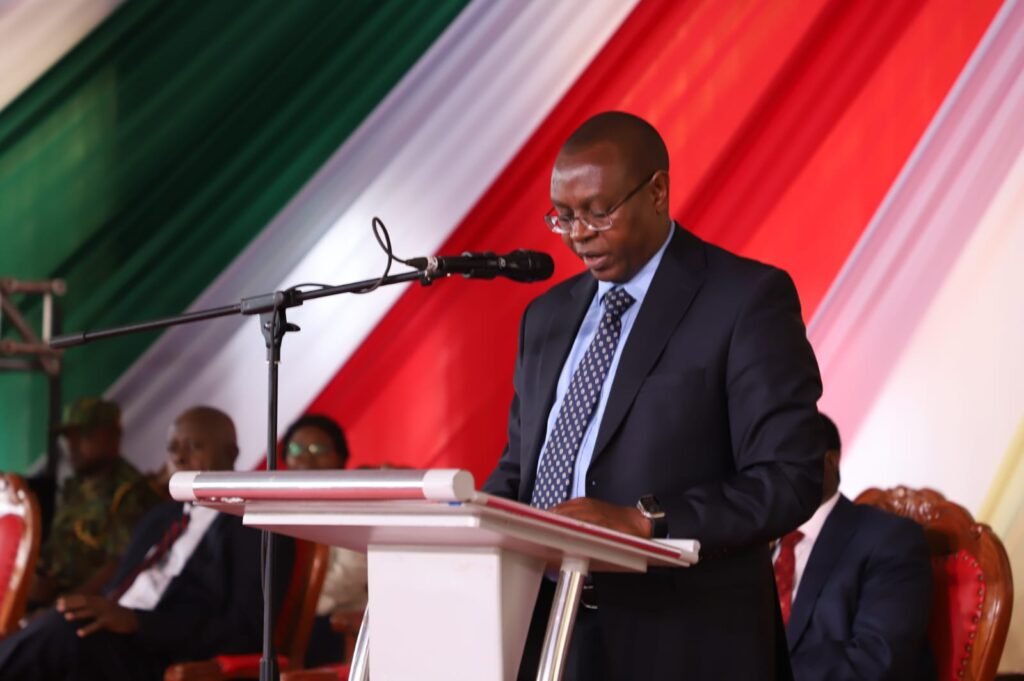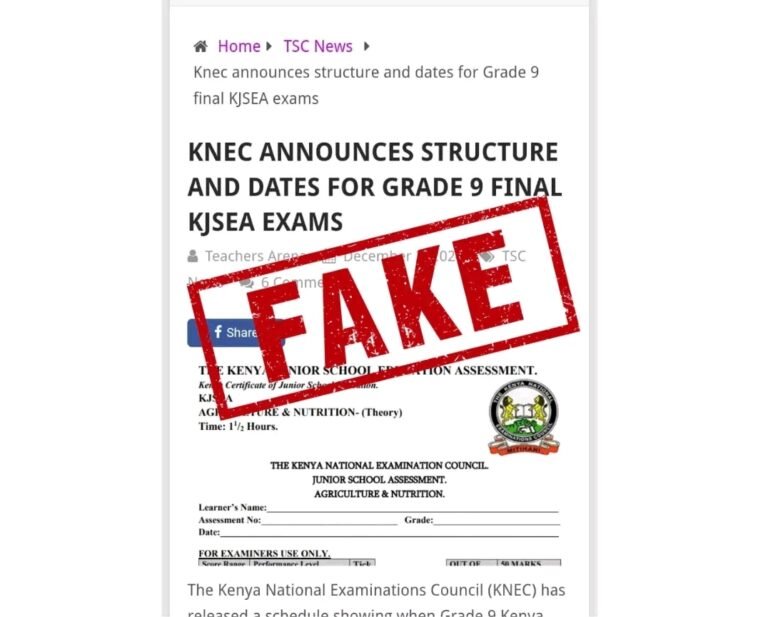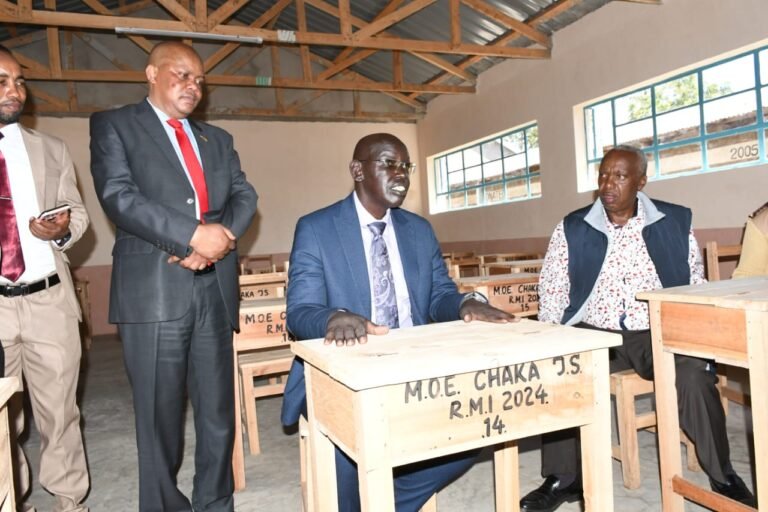
Overview of KNEC’S Payment Structure for Exam Officials
The Kenya National Examinations Council (KNEC) has established a comprehensive payment structure for various officials involved in the management and administration of examinations, particularly the Kenya Certificate of Secondary Education (KCSE). As outlined by KNEC CEO Dr. David Njegere, this structure is designed to ensure that all exam officials are fairly compensated for their vital roles during the examination period.
Under the current scheme, KCSE invigilators are compensated at a daily rate of Ksh 510 . This rate reflects a significant increase compared to previous years, indicating KNEC’s commitment to enhancing the remuneration of those responsible for maintaining examination integrity. Supervisors, who oversee the work of multiple invigilators, earn a daily payment of Ksh 680 , aligning their compensation with the increased responsibilities associated with their role.
Additionally, the security personnel tasked with maintaining order during the examination sessions earn Ksh 460 daily. This structured payment acknowledges the essential nature of their service in safeguarding the examination environment. Furthermore, drivers responsible for transporting both examination materials and personnel receive Ksh 455 per day.
The recent adjustments in payments aim to reflect both the rising costs of living and the critical nature of the exam officials’ responsibilities. When compared to previous rates, these increases demonstrate KNEC’s responsiveness to the demands of personnel in the field. Overall, the revised payment structure signifies a movement towards fair compensation, fostering an environment that encourages diligent service among exam officials. By ensuring that payments are commensurate with the duties performed, KNEC seeks to uphold the standards of integrity and reliability essential to the examination process.
KUPPET’S Demands and the Response from KNEC
In recent discussions between the Kenya Union of Post-Primary Education Teachers (KUPPET) and the Kenya National Examination Council (KNEC), Kuppet has articulated several demands relating to the compensation of exam officials involved in the national examination processes. These demands primarily center around the need for increased remuneration for individuals who oversee the administration of the examinations, citing that the current compensation structure is inadequate considering the heightened responsibilities and increased workload associated with the exams. KUPPET has argued that fair remuneration is essential to ensure that exam officials are motivated and can perform their duties effectively, which directly impacts the integrity and success of the examinations.
Dr. David Njegere, the CEO of KNEC, has addressed these concerns during various forums. He has acknowledged the challenges that exam officials face but has firmly stated that any potential adjustments to the existing pay scale are constrained by the current budget allocations. Njegere emphasized that Knec operates within a limited financial framework and any additional payments to exam officials would require a reassessment of the existing budgetary provisions. The CEO reiterated that KNEC is committed to maintaining a balanced budget while ensuring that the examination process remains efficient and credible.
The implications of these discussions are significant for both KNEC and KUPPET members. For KNEC, the need to maintain fiscal responsibility may hinder its capability to meet KUPPET’S demands, potentially leading to ongoing discontent among exam officials. On the other hand, KUPPET’S insistence on increased payments could intensify negotiations, impacting the relationship between the two organizations. As these discussions unfold, it remains crucial for both parties to find a resolution that respects the financial realities while also valuing the contributions of exam officials to the national education system.
Exam Supervision and Invigilation: Responsibilities and Expectations
In the Kenyan education system, the roles of exam supervisors and invigilators are crucial to ensuring the integrity and smooth operation of assessments. These officials are tasked with overseeing the examination process, ensuring adherence to established protocols and standards. Their primary responsibilities include monitoring the conduct of students during exams, preventing any form of malpractice, and providing assistance as needed. This supervision is vital for maintaining the credibility of the national examinations, which are critical milestones for students across the country.
Training is an essential component for these officials, equipping them with the knowledge and skills necessary to perform their duties effectively. Supervisors and invigilators typically undergo extensive training sessions that cover the examination rules, ethical considerations, and strategies for managing various situations that may arise during the exam period. This preparation ensures that they are aware of their obligations and can address any challenges that may disrupt the examination process. The systematic selection and training of these officials contribute to the overall functionality of the exam environment.
There exists a prevailing belief that the responsibilities of exam supervision and invigilation are not merely voluntary or optional; rather, they are mandatory. This perspective emphasizes the importance of accountability and professionalism within the education sector. Stakeholders argue that these roles carry significant weight in the context of national examinations, as any lapse in supervision can severely compromise the examination’s integrity. Consequently, this understanding serves as a foundation for discussing related issues, including the arguments surrounding compensation for these essential duties. As the conversation surrounding payment for exam officials unfolds, recognizing the importance of their roles remains paramount in the broader context of educational quality and accountability.
The Budgeting Challenge in Educational Compensation
The budgeting framework surrounding the compensation of exam officials in Kenya presents a significant challenge for the Kenya National Examinations Council (KNEC). This complexity arises due to various factors that influence educational budgets, including government allocations, statutory requirements, and the overall financial constraints faced by the education sector. Given the rising costs associated with exam administration, Knec has encountered difficulty in effectively compensating all personnel involved in these critical processes.
First and foremost, the allocation of financial resources in the education sector often reflects broader economic conditions and policy priorities. With limited funding available, KNEC must navigate competing demands—balancing the need to equitably compensate exam officials, enhance examination processes, and invest in educational infrastructure. Consequently, exam officials frequently find themselves at the mercy of fluctuating budgets that do not account for rising living costs or increased workloads.
Another aspect contributing to the budgeting challenges is the need for transparency and accountability in financial management. Stakeholders, including unions like KUPPET, have raised concerns about the efficiency with which KNEC utilizes its allocated resources. This scrutiny necessitates a clear justification for compensation packages and the overall expenditure on exam administration, often resulting in additional pressure on KNEC to optimize its financial decisions. Furthermore, external factors such as inflation compound the difficulties in maintaining satisfactory levels of compensation for exam officials.
Looking ahead, KNEC faces the daunting task of reevaluating its compensation strategies within the existing financial framework. There are opportunities to explore alternative funding mechanisms or partnerships that could provide supplementary resources. Additionally, a thorough analysis of the budgeting processes could lead to restructured compensation models that more accurately reflect the contributions of exam officials. Addressing these challenges is essential not only for the well-being of the personnel involved but also for ensuring that Kenya’s education system maintains its integrity and quality in examination administration.




